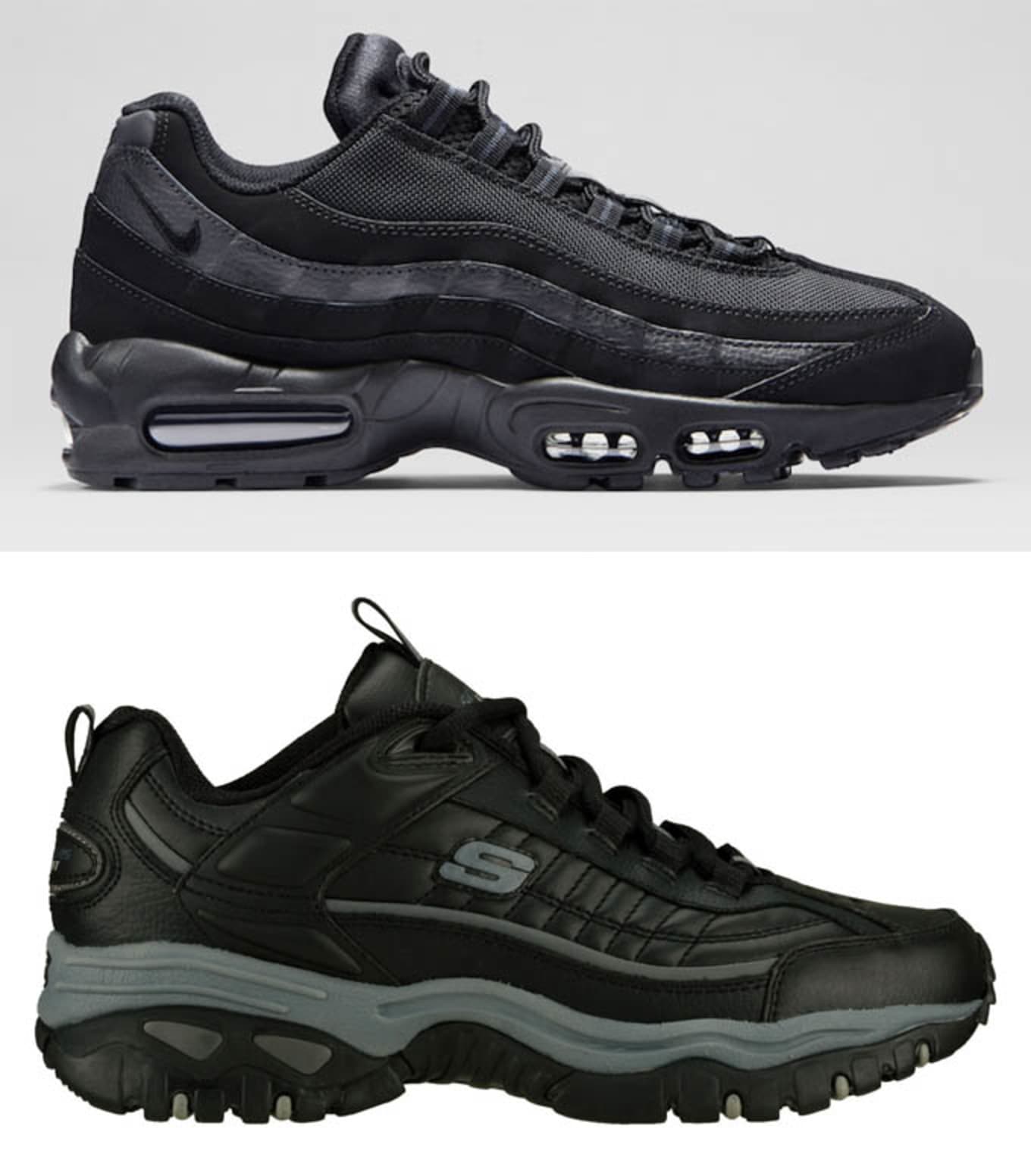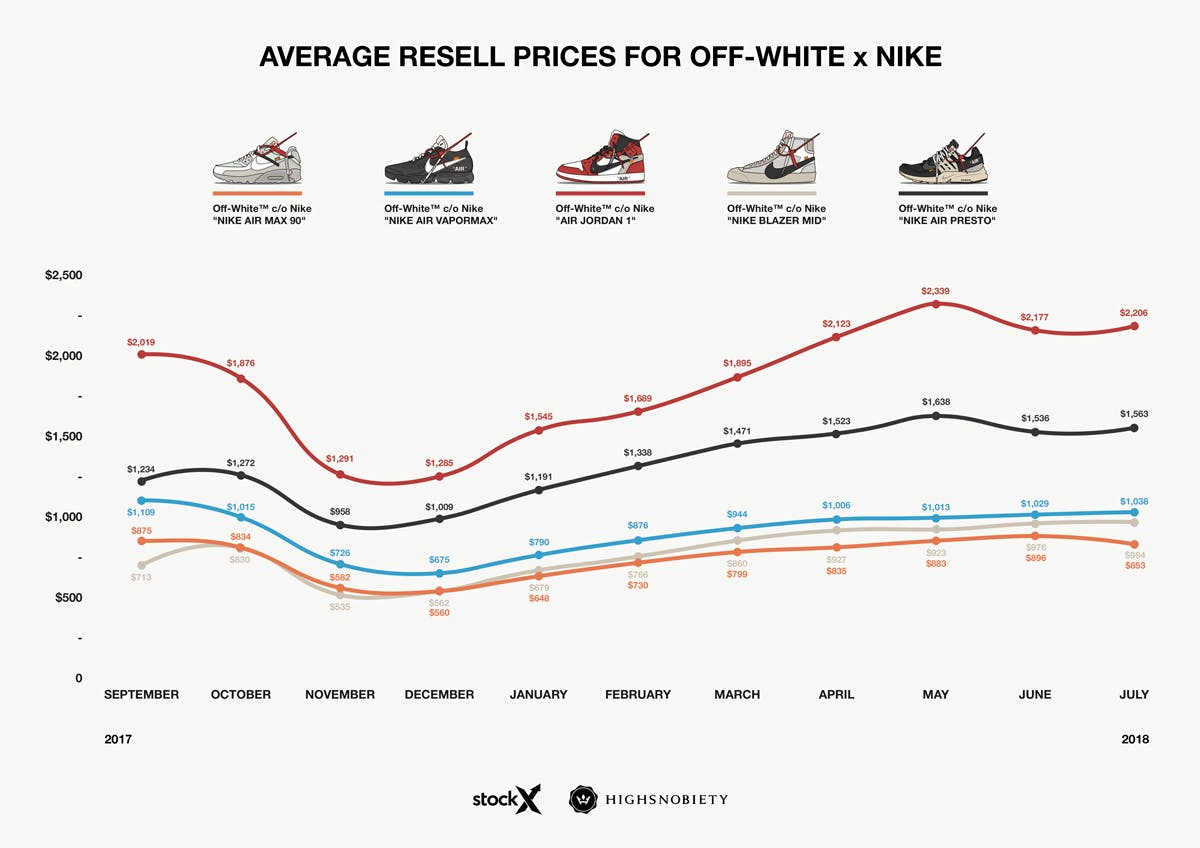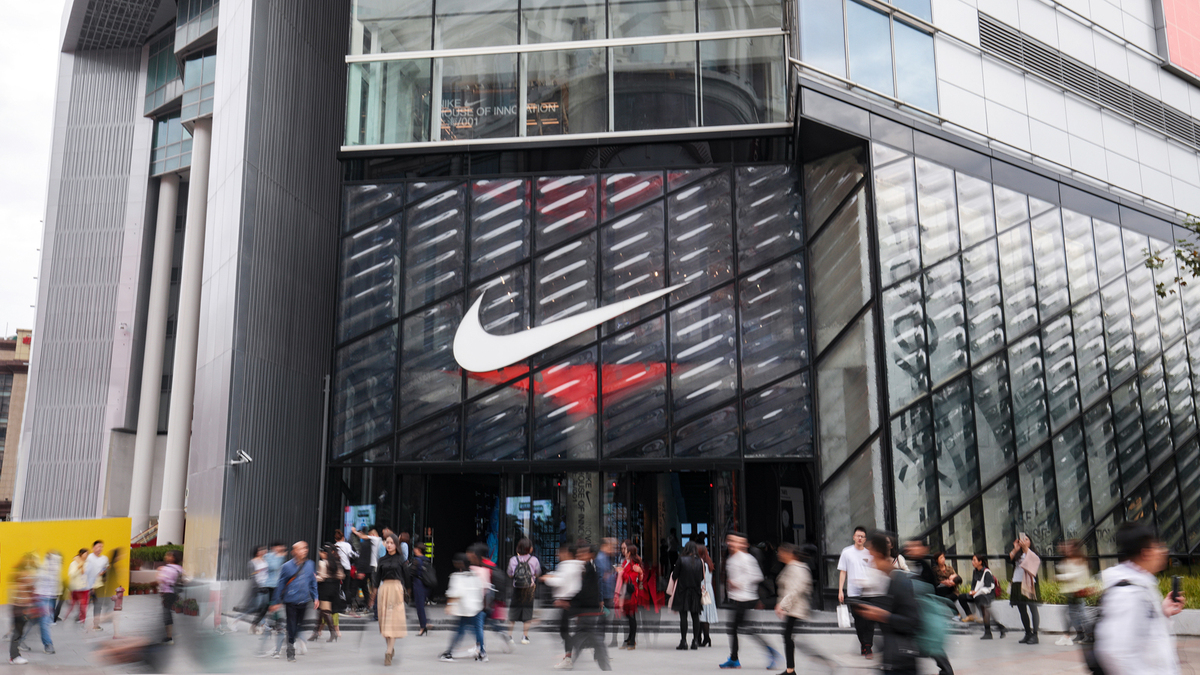In 2011, the last time the Jordan 3 Black Cement was released, at a retail of 160 US Dollars, it sold out globally in minutes. And that's because people were camped outside of sneaker stores for days before it went on sale. And just minutes after that, thousands of those pairs were on eBay for two and three times retail. In fact, there's over 1,000 pairs on eBay right now, four years later.
But here's the thing: this happens every single Saturday. Every week there's another release or two or three, and every shoe has a story as rich and compelling as the Jordan 3 Black Cement. This is Nike building the marketplace for sneakerheads -- people who collect sneakers -- and my daughter. That's an "I love Dad" T-shirt. For the brands, sneakerheads are a very important demographic. These are the tastemakers; these are the Apple fanboys. Because who else is going to buy a pair of $8,000 Back to the Future sneakers?
Yeah, 8,000 US Dollars. And while that's obviously the anomaly, the resell sneaker market is definitely not. Thirty years in the making, what started as an underground culture of a few people who like sneakers just a bit too much. Now we have sneaker addictions. In a market where in the past 12 months, there have been over nine million pairs of shoes resold in the United States alone, at a value of 1.2 Billion US Dollars.
 |
| Jordan 3 Black Cement |
For a lot of people, sneakers are a legal and accessible investment opportunity a democratized stock market, but also unregulated. Which is why the story you're probably most familiar with is people killing each other for sneakers. And while that definitely happens and is tragic, it's not nearly the epidemic some media would have you believe.
In fact, it's a very small piece of a much bigger and better story. So sneakers have clear similarities to both the stock exchange and the illegal drug trade, but perhaps the most fundamental is the existence of a central actor. Someone is making the rules. In the case of sneakers, that someone is Nike. Let me walk you through some numbers.
The resell market, we know, is $1.2 Billion. Nike, including Jordan brand, accounts for 96 percent of all shoes sold on the secondary market. Just complete domination. Sneakerheads love Jordans. And profit on the secondary market is about a third. That means that sneakerheads made 380 Million US Dollars selling Nikes last year.
Let's jump to retail for a second. Skechers, earlier this year, became the number two footwear brand in the country, surpassing Adidas this was a big deal. And in the 12 months ending in June, Skechers's net income was 209 Million US Dollars.
 |
| Nike VS Skechers |
That means that Nike's customers make almost twice as much profit as their closest competitor. How is that even possible? The sneaker market is just supply and demand, but Nike's gotten very good at using supply -- limited sneakers -- and the distribution of those sneakers to their own benefit. So it's really just supply.
Sneakerheads joke that as long as it's limited and Nike, they'll buy it. Shoes that sell for 8,000 dollars do so because they're very rare. It's no different than any other collectible market, only this isn't a market at all. It's a false construct created by Nike -- ingeniously created by Nike, in the most positive sense -- to sell more shoes. And in the process, it provided tens of thousands of people with life-long passions, myself included.
If Nike wanted to kill the resell market, they could do so tomorrow, all they have to do is release more shoes. But we certainly don't want them to, nor is it in their best interest. That's because unlike Apple, who will sell an iPhone to anyone who wants one, Nike doesn't make their money by just selling $200 sneakers.
They sell millions of shoes to millions of people for 60 US Dollars. And sneakerheads are the ones who drive the marketing and the hype and the PR and the brand cachet, and enable Nike to sell millions of $60 sneakers.
It's marketing. It's marketing the likes of which has never been seen before -- this isn't in any textbook. For 15 years Nike has propped up an artificial commodities market, with a Facebook-level hyped IPO every single weekend. Drive by any Footlocker at 8am on a Saturday morning, and there will be a line down the street and around the block, and sometimes those kids have been waiting there all week.
You know those crazy iPhone lines you see on the news every other year? Nike lines happen 104 times more often. So Nike sets the rules. And they do so by controlling supply and distribution. But once a pair leaves the retail channel, it's the Wild West. There are very few -- if any -- legal, unregulated markets of this size.
So Nike is definitely not the stock exchange. In fact, there is no central exchange. By last count, there were 48 different online markets that I know of.Some are eBay clones, some are mobile markets, and then you have consignment shops and brick-and-mortar stores, and sneaker conventions, and reseller sites, and Facebook and Instagram and Twitter -- literally, anywhere sneakerheads come into contact with each other, shoes will be bought and sold. But that means no efficiencies, no transparency, sometimes not even authenticity.
Can you imagine if that's how stocks were bought? What if the way to buy a share of Apple stock was to search over 100 places online and off, including every time you walk down the street just hoping to pass someone wearing some Apple stock? Never knowing who had the best price, or even if the stock you were looking at was real. That would surely make you say: [WTF?] Of course that's not how we buy stock. But what if that's not how we need to buy sneakers either? What if the inverse is true, and what if we could buy sneakers exactly the same way as we buy stock?
And what if it wasn't just sneakers, but any similar product, like watches and handbags and women's shoes, and any collectible, any seasonal item and any markdown item? What if there was a stock market for commerce? A stock market of things. And not only could you buy in a much more educated and efficient manner, but you could engage in all the sophisticated financial transactions you can with the stock market.
Shorts and options and futures and well, maybe you see where this is going. Maybe you want to invest in a stock market of things. Because if you had invested in a pair of Air Jordan 3 Black Cement in 2011 you could either be wearing them onstage, or have earned 162 percent on your money, double the S&P and 20 percent more than Apple.





